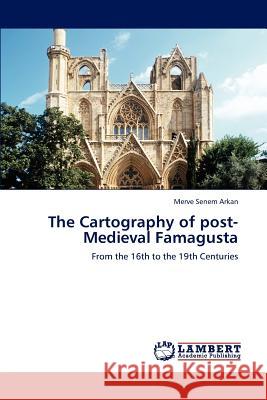The Cartography of post-Medieval Famagusta » książka
The Cartography of post-Medieval Famagusta
ISBN-13: 9783659182112 / Angielski / Miękka / 2012 / 124 str.
Since the late 15th century, urban maps have illustrated with greater accuracy and reliability, detailed information about cities and towns. Such maps, in addition to offering the physical appearance of cities, have also given us an insight into the social and political contexts of the era. Cyprus, with its turbulent history, is no exception. Famagusta as a harbour city, in particular, has been occupied by various powers, in which time historical and cultural contexts of the city have changed and left behind material traces.However, maps do not always reflect the true image of a city similar to other historical sources they can be biased as well and so the researcher must tread with care. As the maps and history are interlinked with each other, as Famagusta changed, so too did the cartographic depictions of the city. In each period, various factors effected the changing representation of the city which will be examined in this thesis by analysing maps throughout history. This study concerns itself with the 16th-19th centuries and should contribute a deeper understanding to both historians of the time and place.
Since the late 15th century, urban maps have illustrated with greater accuracy and reliability, detailed information about cities and towns. Such maps, in addition to offering the physical appearance of cities, have also given us an insight into the social and political contexts of the era. Cyprus, with its turbulent history, is no exception. Famagusta as a harbour city, in particular, has been occupied by various powers, in which time historical and cultural contexts of the city have changed and left behind material traces.However, maps do not always reflect the true image of a city similar to other historical sources they can be biased as well and so the researcher must tread with care. As the maps and history are interlinked with each other, as Famagusta changed, so too did the cartographic depictions of the city. In each period, various factors effected the changing representation of the city which will be examined in this thesis by analysing maps throughout history. This study concerns itself with the 16th-19th centuries and should contribute a deeper understanding to both historians of the time and place.











